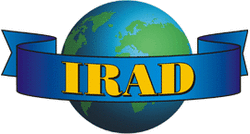International Registry of Acute Aortic Dissections

We are a contributing member of the International Registry of Acute Aortic Dissections (IRAD). IRAD is a consortium of medical centers that are evaluating the current management and outcomes of acute aortic dissection. It was established in 1996, and currently has about 30 large referral centers in 12 countries participating in the registry. The main purpose of IRAD is to assess the etiological factors, modes of presentation, clinical features, treatment, and hospital outcomes of patients with acute aortic dissection around the world.
Using this information we are seeking to identify new breakthroughs in diagnosis and treatment have just been developed including groups targeting: the genetic basis of aortic dissection; use of acute and chronic biomarkers; best surgical approach; best medical approach; how patients should be followed; and what is the proper role for percutaneous stent graft therapy. IRAD collectively has published more than the 50 scientific papers. These publications have appeared in prestigious journals including the New England Journal of Medicine, JAMA, and Circulation.
Using this information we are seeking to identify new breakthroughs in diagnosis and treatment have just been developed including groups targeting: the genetic basis of aortic dissection; use of acute and chronic biomarkers; best surgical approach; best medical approach; how patients should be followed; and what is the proper role for percutaneous stent graft therapy. IRAD collectively has published more than the 50 scientific papers. These publications have appeared in prestigious journals including the New England Journal of Medicine, JAMA, and Circulation.
STS Database
The STS National Database was established in 1989 as an initiative for quality improvement and patient safety among cardiothoracic surgeons. There are three components to the STS National Database, each focusing on a different area of cardiothoracic surgery—Adult Cardiac, General Thoracic, and Congenital Heart Surgery.
INTERMACS
INTERMACS is a national registry for patients who are receiving mechanical circulatory support device therapy to treat advanced heart failure. This registry was established as a joint effort of the National Heart, Lung and Blood Institute (NHLBI), the Centers for Medicare and Medicaid Services (CMS), the Food and Drug Administration (FDA), clinicians, scientists and industry representatives in conjunction with the University of Alabama at Birmingham (UAB) and United Network for Organ Sharing (UNOS).
UNOS
The United Network of Organ Sharing (UNOS) provided de-identified patient-level data from the Thoracic Registry (data source #110306-8). These data include all transplant recipients and donors in the U.S. reported to the Organ Procurement and Transplantation Network beginning October 10, 1987. Data entry by all US transplant centers was mandated by the 1984 National Transplantation Act.
